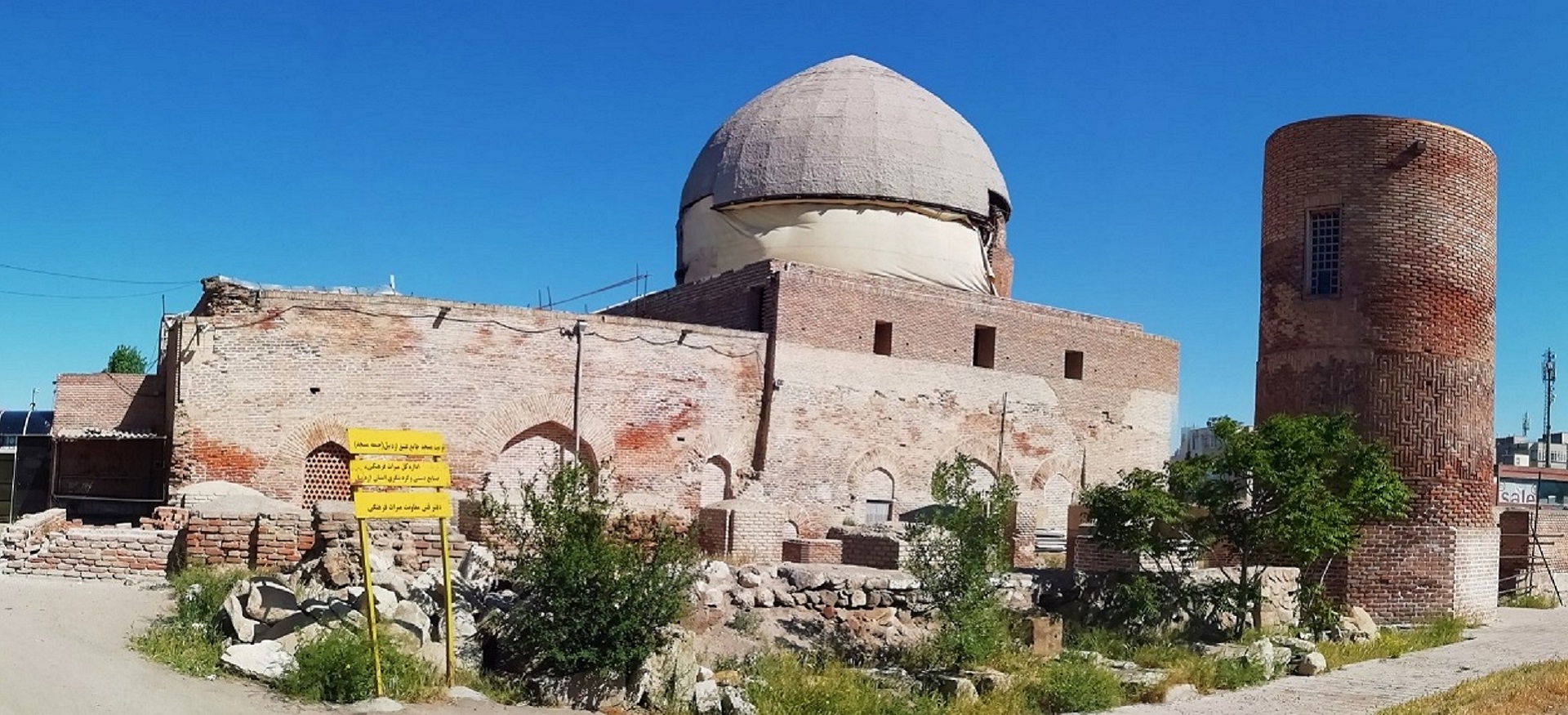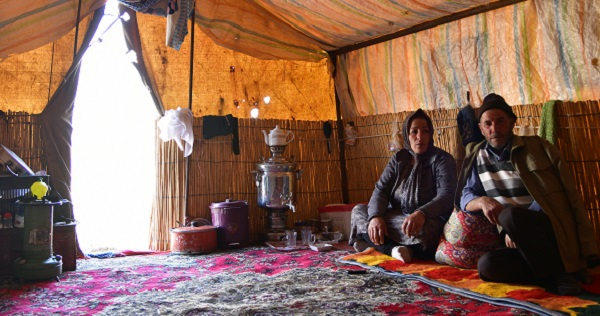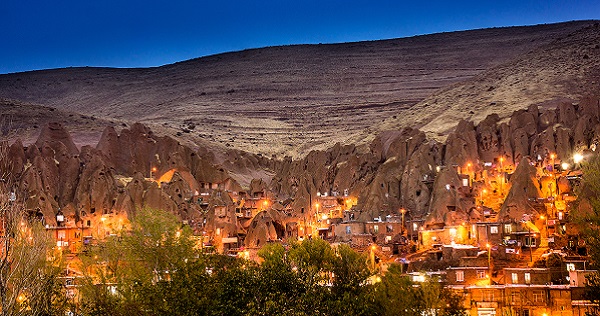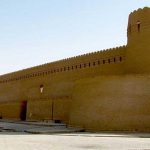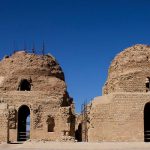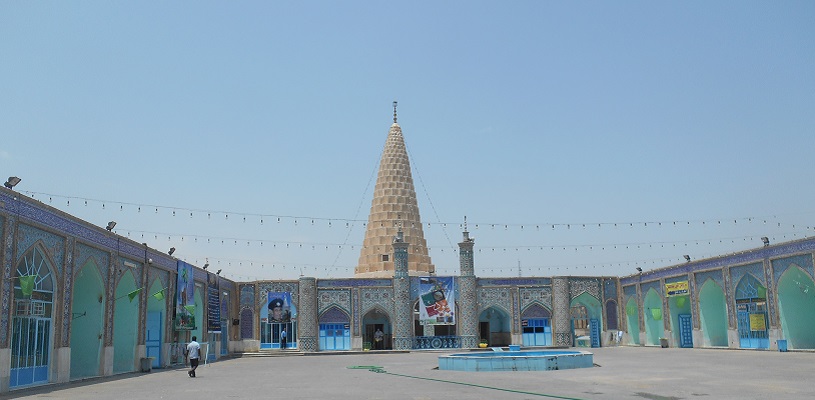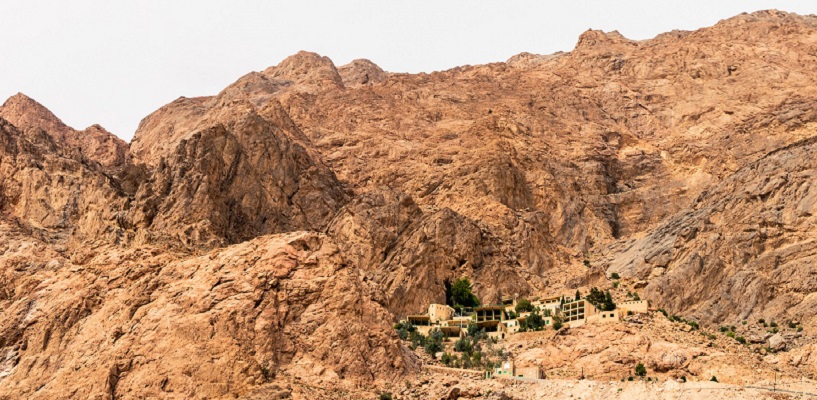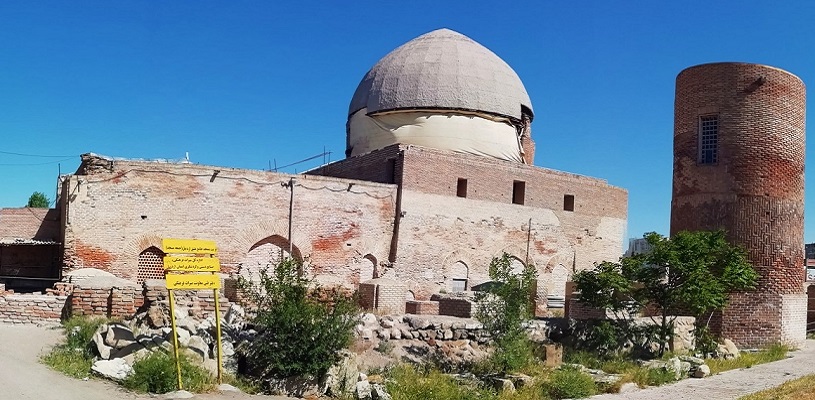
Friday Mosque of Ardabil (Jame’e Ardabil Mosque), Iran
If you are a historical site enthusiast, consider visiting Friday Mosque of Ardabil. Jameh Mosque of Ardabil, also known as Atiq Mosque and Jome Mosque, features amazing artistic and architectural characteristics. The mosque is also among the exceptional Islamic monuments. Friday Mosque was in fact built on top of the ruins of a historical Fire temple, dating from the second and third centuries. The mosque’s plan is an imitation of that of the 3rd-century Iranian architectural structures and earlier mosques. Would you like to join a tour of the Jome Msque?
Contents
- 1 Why Visit the Friday Mosque of Ardabil
- 2 The Friday Mosque of Ardabil Over the Passage of Time
- 3 What to Expect in the Friday Mosque of Ardabil
- 4 The Friday Mosque – The Long-Standing Minaret
- 5 The Friday Mosque of Ardabil – Shabestan
- 6 The Old Mosque
- 7 More about The Friday Mosque of Ardabil
- 8 Jame’e Ardabil Mosque Tours – The Friday Mosque of Ardabil
- 9 Jameh Mosque of Ardabil on Map
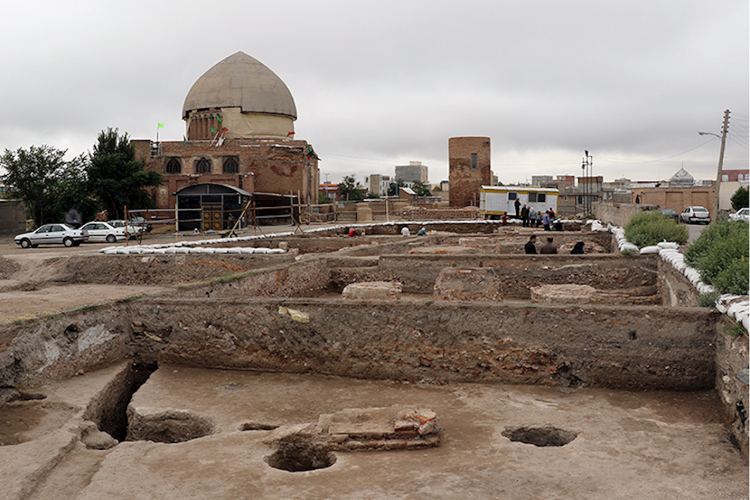
Jome Mosque – The Friday Mosque of Ardabil
Why Visit the Friday Mosque of Ardabil
- Friday Mosque of Ardabil, as one of the largest and oldest monuments in northwest Iran, is 800 years old.
- The architectural highlight of the mosque is chiefly its network of underground corridors and vaulted arcades.
- The amazing tilework, stuccowork, paintings, and Muqarnas inside the mosque are reminiscent of Islamic-Persian architecture.
- Several potteries have been excavated in the mosque, which date back to the10th and 11th centuries.
The Friday Mosque of Ardabil Over the Passage of Time
Interestingly, the Friday Mosque of Ardabil is one of the largest and oldest Islamic monuments in northwest Iran. Friday Mosque stands on the top of a hill near Ardabil Bazar. However, the original site used to be an ancient Sassanid fire temple. Indeed, according to the historians, Muslims turned the temples into the mosques whenever they conquered a city. The same old story happened to this Sassanid fire temple in Ardabil, too. First, Seljuqs founded the mosque over 800 years ago and it was active until the Safavid era (16th century).
This Seljuq mosque from the 11th century is comparable to the pre-Islamic architectural structures, which have probably inspired the Islamic monuments. Jome Mosque used to be larger in size, sharing architectural features with its contemporary and earlier mosques. The building has undergone restorations several times. Particularly, in the 13th century, Mongols demolished the original structure. Then, people decided to restore the mosque. Eventually, they fully restored the dome, and fresh stuccowork and paintings adorned the Shabestan (prayer hall) and Mihrab (the place where the Islamic leader prays).
What to Expect in the Friday Mosque of Ardabil
On a hilltop sits the the Friday Mosque of Ardabil in the middle of a graveyard. The architectural highlight of Jome Mosque, which makes it unique, is its large network of underground corridors and vaulted arcades. These arcades particularly separate the outer and inner walls of the mosque and form a narrow covered passage around the structure. The amazing tilework, stuccowork, paintings, and Muqarnas (ornamented vaulting Islamic architecture) inside the mosque are reminiscent of Islamic-Persian architecture. The mosque comprises several fantastic architectural elements including the long-standing minaret, the Iwan or Shabestan (prayer hall), and the old mosque.
The Friday Mosque – The Long-Standing Minaret
Firstly, remains of a minaret catches the visitor’s eyes. This amazing brick relic consists of an octagonal base and a cylindrical shaft five meters in diameter. Horizontal and floral brickwork chiefly embellish the minaret. The minaret also exhibits two inscriptions dating from the 15th century, which contain financial issues. Rumor has it that the Russian invaders plundered one of the inscriptions along with other exquisite items in the 18th century. The top of the minaret has collapsed and only eight meters of the minaret is left.
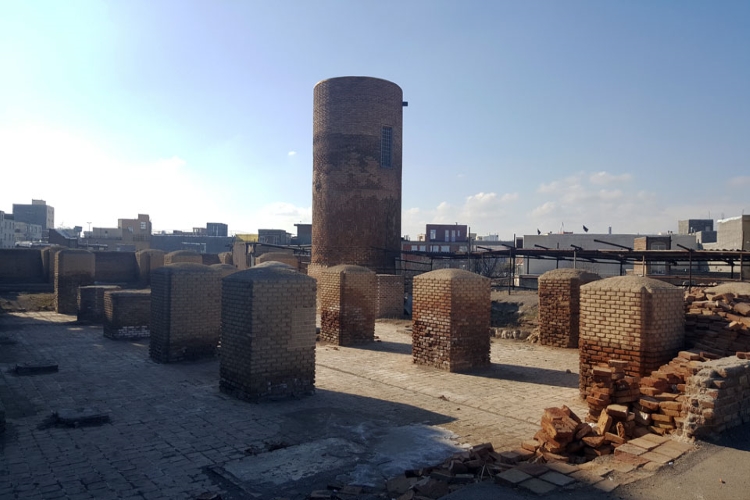
The Friday Mosque of Ardabil – The Minaret of the Mosque
The Friday Mosque of Ardabil – Shabestan
Secondly, the fabulous Shabestan of the mosque showcases a modest wooden architecture. Its Tirpoosh ceiling (basic, flat type of ceiling) with its timbers lies over the wooden pillars. The wooden pillars also stand on stone bases. Furthermore, geometrical motifs, door iron nails, and an inscription adorn the exquisite wooden doors of the Shabestan. These wooden elements combined with stone and iron bring about a nostalgic atmosphere.
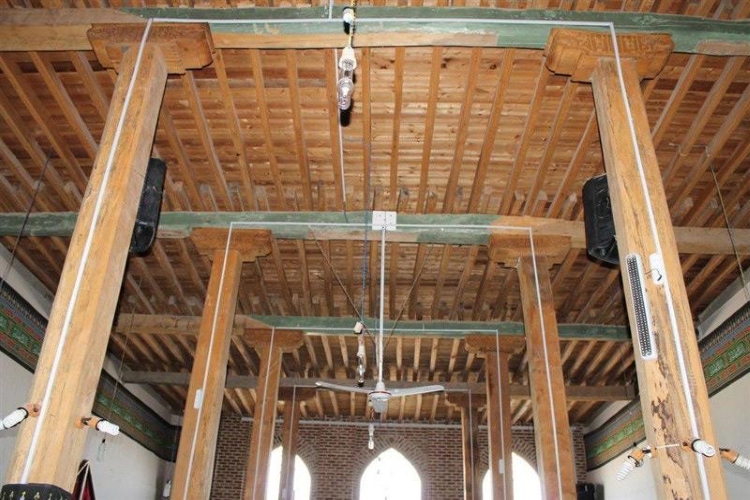
The Friday Mosque of Ardabil Architecture – Shabestan’s Wooden Ceiling
The Old Mosque
Have a genuine experience of an old Islamic construction in the Old Mosque. Indeed, its brick structure with poor tilework is a wonderful reminiscent of basic Islamic architecture. The Chahartaq (an architectural structure with four arches and a dome) architecture of the mosque turns it to a glamorous structure. Furthermore, the splendid stuccowork, mosaic tilework, Muqarnas, and floral motifs decorate the square-shaped Gonbadkhane (a space under the dome) and Mihrab. Diverse arcades and passages connect Gonbadkhane to various sections of the Friday Mosque.
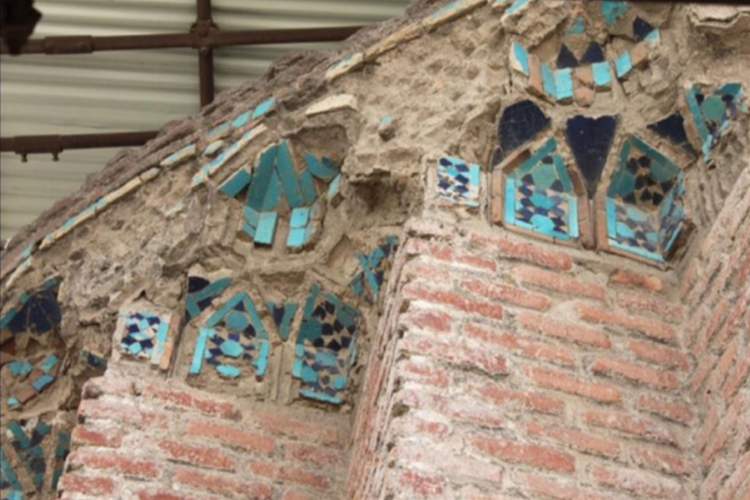
Tilework of the Dome – The Friday Mosque of Ardabil
More about The Friday Mosque of Ardabil
When to Visit Friday Mosque
The best time to visit the mosque is spring and summer. Jome Mosque is open everyday from 8 a.m. to 8 p.m.
Attractions Near the Mosque
If you travel to Ardabil, make sure to visit the UNESCO world Heritage Site Sheikh Safi Al-Din Shrine. This ensemble will offer you a multitude of historical monuments. Ardabil Bazaar and historical baths are also pretty close to the Jome Mosque. Consider visiting them, too!
Nearby Restaurants
Shah Abbas Restaurant
Haj Malek Kebeb
Laleh Restaurant

